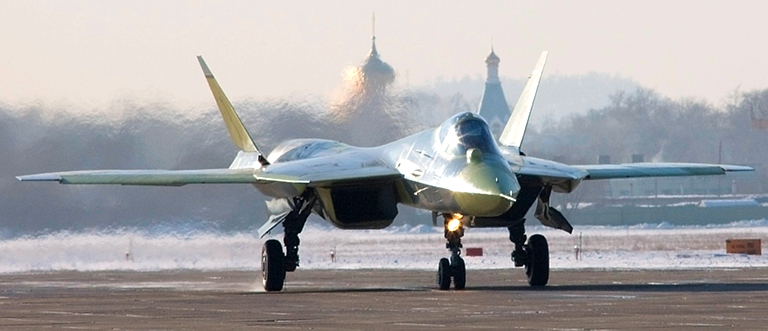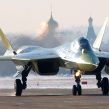
Faltering Revenues Jeopardize Russia’s Military Rearmament Program
Publication: Eurasia Daily Monitor Volume: 13 Issue: 48
By:

The Russian Ministry of Finance is struggling to balance the budget, gutted by the low prices of oil and other Russian staple export commodities. The problem is made worse by Western financial sanctions over Crimea and Ukraine, which have severely limited Moscow’s ability to borrow abroad, while the internal money market is shallow (see EDM, March 3). Social spending is being axed: State-funded salaries and pensions are not being inflation-adjusted while spending on health care and education has been cut. Additional levies are being introduced. The finance ministry announced a goal of a 10 percent overall sequestration of federal government expenditures in 2016 as a first step to balance the budget but has warned this might not be enough, if the price of oil does not rally soon.
National defense makes up some 20 percent of Russia’s overall expenditure, or over 4 percent of the country’s GDP. In 2015, the defense budget was cut some 3.8 percent. In 2016, defense spending is planned at 3.14 trillion rubles (around $44 billion). A significant cutback, in addition to Russia’s present double-digit inflation, could jeopardize President Vladimir Putin’s highly ambitious rearmament program, which was designed to transform the Russian military into a modern fighting force by 2020. According to one assessment by an independent defense spending think tank, in 2016, some 68 percent—or 2.142 trillion rubles (about $30.6 billion)—of the overall defense budget is being allocated to defense procurement (Vedomosti, February 19).
Putin’s former finance minister Alexei Kudrin argues that Russian’s defense spending will inevitably be cut despite the present standoff with the West (Rosbalt, January 13). Apparently, Putin disagrees. Last week (March 5), the deputy defense minister in charge of defense spending and procurement, Tatyana Shevtsova, announced in a radio interview that Putin has decided not to cut the rearmament program or soldiers’ social security and payroll allocations. According to Shevtsova, the Russian president agreed that cuts in the rearmament program may undermine national security and must be approved by the Security Council, taking into consideration existing threats. Seemingly, only a small portion of defense spending will be cut by 5 percent—some logistic and building projects. Shevtsova assures, “we [the defense ministry] will not notice any cuts” (Rusnovosti.ru, March 5).
Shevtsova acknowledged in the interview that the Russian defense industry has been misusing budget funds. A new law was enacted, beginning September 1, 2015, requiring contractors to keep budgetary funds in special accounts at several specially designated state-owned banks, which control disbursement to prevent misappropriation. An increasingly serious problem is the so called “budgetary indebtedness”—defense contractors are allocated cash advances but fail to produce, in full or on time, the armaments or other goods they were contracted to build. According to Shevtsova, the defense ministry is now less generous in handing out money to defense contractors than it was during the time of high oil prices (Rusnovosti.ru, March 5). Putin is reportedly strongly annoyed by “budgetary indebtedness” and has publicly demanded the problem be solved: “We had credited the defense industry by advancing payments to help them, but now it is getting out of hand.” Putin has demanded the strict rules imposed by the September 1, 2015, law be followed up, but “modifications may be applied swiftly by the defense ministry to keep the rearmament program running smoothly” (TASS, February 12).
According to Tatyana Golikova (50), the head of the Account Chamber of Russia, “budgetary indebtedness,” primarily of the defense industry, has been growing dramatically; by the end of 2015, it has exceeded 4 trillion rubles ($58.6 billion). According to Golikova, government contractors have been handed out cash advances: “Why continue to plan budgetary expenses, if the recipients are incapable of effectively spending them?” The problem is made worse by the fact that a large portion of the Russian federal budget is secret—the actual disbursing of the “closed” part of the budget is not in the public domain. In 2015, almost a trillion rubles ($14 billion), mostly earmarked for defense and other “closed” budgetary items, was not spent by the defense ministry and other intelligence/security departments as the fiscal year ended. Reportedly, Putin was incredibly angry. Though, due to the “closed” nature of the funding, all the discussions were also secret, with only sketchy details leaked to the media by unnamed government officials (Rbc.ru, January 15).
The Kremlin seems to believe it is threatened by the West, which is purportedly devoted to undermining Russia by replacing the Putin regime through “democratization” and so-called “color revolutions.” The Russian military believes that prodemocracy protests are an essential part of so-called “hybrid warfare,” aimed at regime change, and must be suppressed by all means available (Kommersant, March 1; see EDM, March 8). The rearmament program is seen by the Kremlin as absolutely essential for regime survival—the West must be deterred and pushed back. At the same time, today’s Russia is clearly not ready for any showdown, as its rearmament has not yet produced the planned massive array of modern weapons for the Russian Armed Forces. The Kremlin is essentially engaged in intricate maneuvering: On the one hand, it uses nuclear and conventional threats to deter and push back the West. While on the other, it simultaneously seeks compromises on the thorny issues of Ukraine and Syria to achieve a repeal of sanctions and regain access to Western money and technologies without which the key rearmament program cannot be fully or swiftly realized.
This ambivalent attitude has been criticized as weak. Alexander Khramchikhin writes in Nezavisimoe Voennoe Obozrenie: the wobbly ceasefire in Syria and in Ukraine and the Minsk Two agreement are concessions needlessly given without a firm commitment by the West in return to end sanctions and recognize Crimea as Russian. Instead Russia must press on to full victory in Syria and Ukraine—particularly, since the North Atlantic Treaty Organization (NATO) and the United States, led by President Barack Obama, are too week and indecisive to fight (Nezavisimoe Voennoe Obozrenie, March 4). Deputy Prime Minister Dmitry Rogozin announced this week: “Sanctions will never be repealed; while Russia is striving to be strong, the West will be against us in the Arctic and everywhere.” Therefore, he concluded, Russia must stop paying attention to what the West says or does (TASS, March 9).




